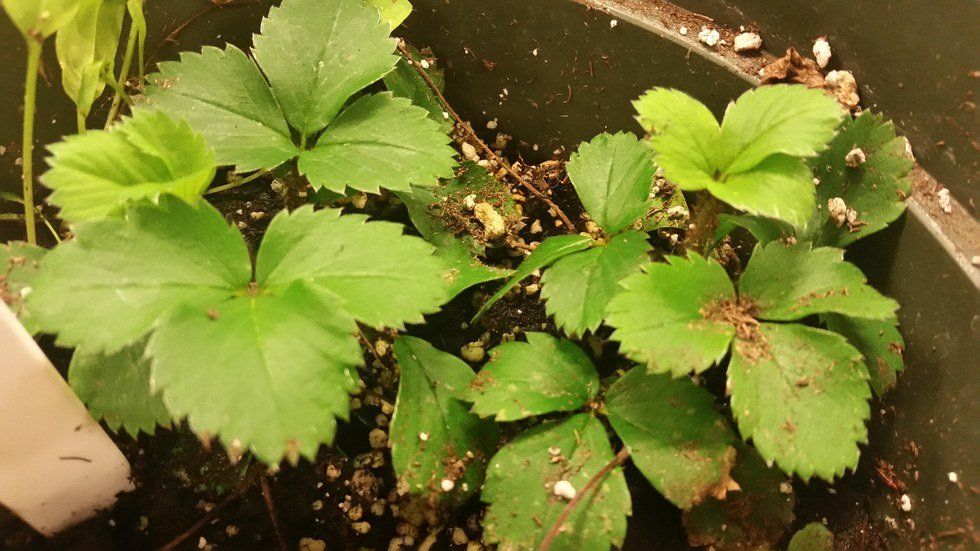The antagonist of every gardener is the weed. Weeds seem to arise out of nowhere, contaminating every last bit of earth. Every time you pull them, hoe them or cultivate them under, you never stop them for very long. People do not believe weeds have any purpose. They only exist to wreck all of our hard work. We are seeking to control what we do not understand.
Herbicides are falling out of favor. This technology has proven to eliminate the hard labor of cultivating the fields and the competition with our crop. Though like most short cuts, it brought a new host of problems: toxicity to consumer, environmental pollution and decreased biodiversity in the soil.
Our great thinkers have brought forth great insight on the matter. Henry David Thoreau depicts his experience with weeds in "Walden." Thoreau gave into the weeds, declaring the weeds had the right to over take over his beans; who was he to intervene? Survival of the fittest is the name after all. Though, mustn't we put ourselves first, we must eat. Taking out the weeds and consuming the food would make us more fit. After all it is only thought that would prevent us from taking advantage of nature. Michael Pollan thought to return to return his garden to native plant inhabitants. Shouldn't they be able to out compete in their home-turf? Quickly he realized the weeds would always over take with haste. A basic principle of a weed, able to compete with lack of antagonistic environmental factors i.e. disease, predators.
Emerson, Thoreau's mentor, graced the most fitting perspective of weeds. Stating the weeds are plants we have yet to discover uses for. He is correct that many weeds in our gardens have many benefits; uses for medicinal, edible and energy purposes. These discoveries of their benefits are not post Emerson who wrote in the transcendental period of the 1800s. Many of the weeds' uses have been known for centuries, some for millennia. Of course this was all before peer reviewed scientific research, but nonetheless known.
So if some weeds have benefits -- let's name a few: lamb's quarters, purslane and broad plantain are great used as any other green is (even more nutritious than ones in use today in the USA); chicory root and dandelion root are great uses for drinks after being roasted; mugwort, Japanese knottweed, and St. John's wort are all know as invasives, but have amazing medicinal qualities-- why haven't they been put into use? Well, they have been used before but become unpopular (many more articles can be written about this). For the most part, after being transported from their homeland to be cultivated for their benefits in a new land, they were forgotten. To us gardeners and farmers they are mere weeds. These weeds that have overlooked uses. Weeds have uses. Many are more nutritious and medicinal than current crops.
This may be a new fact to a lot of us. We all know that they seem to grow despite of everything we do to stop them. Hold on, wouldn't that be a great trait of a crop? Instead of the barely nutritious crops that need to be pampered like eggplant. Could we not let these weeds grow in peace in our fields and harvest them? We'd have poly cultures that are sprayed with synthetic chemicals, don't die, are watered, reproduce and set seed without our assistance, require minimal labor and have high yielding beneficial crops. Wouldn't that be ideal? Why do we not reap the benefits of weeds? I have not answered what a weed is. Just given my justification of weeds. My definition of a weed is "any organism that prospers in the foot-steps of humans." Compact soil in a field or at the edge of a parking lot will yield much dandelion and burdock, suburban back yards have dozens of finches pass through, city streets are the home to millions of pigeons and rats. They all thrive in areas impacted by humans. We are their foundation species. Nothing we do eliminates these species they all thrive in spite of us. In reality, they thrive because of us.
The modern agriculturalist creates the perfect environment for weeds. Either he/she must adopt new methods to prevent creating favorable landscapes for weeds or she/he should embrace the species that grow in the conditions she/he creates. As I see it those are the only options we have for dealing with "weeds" in a sustainable manner.





















